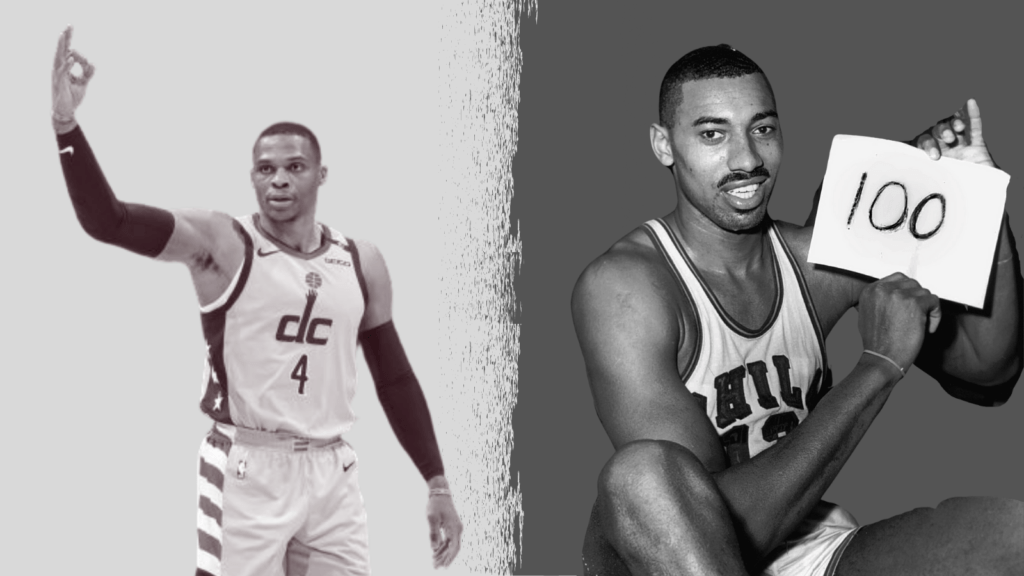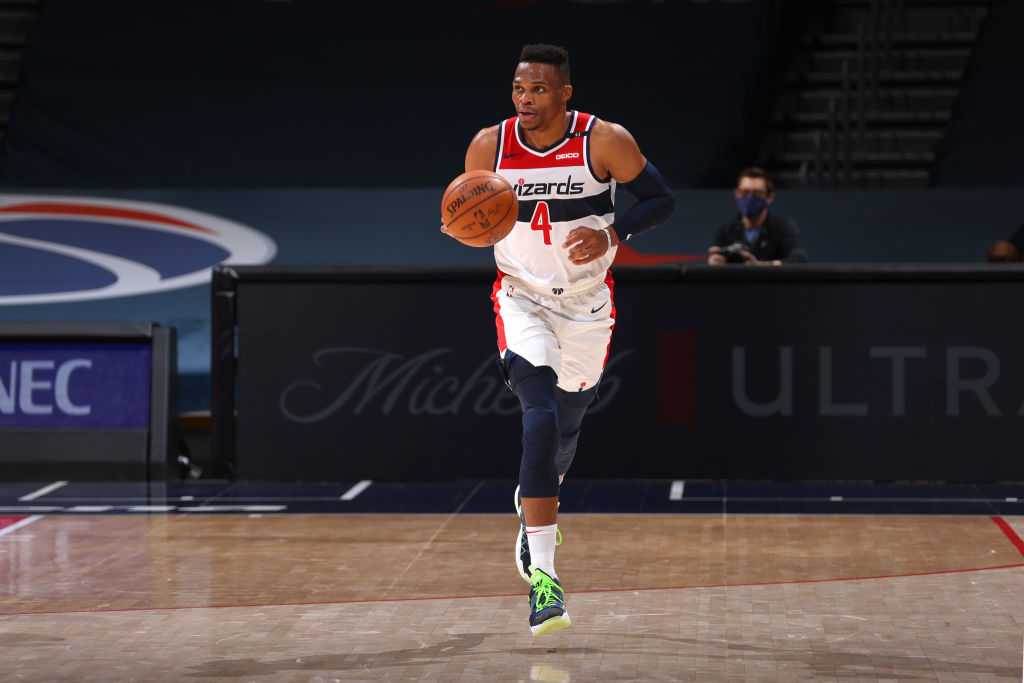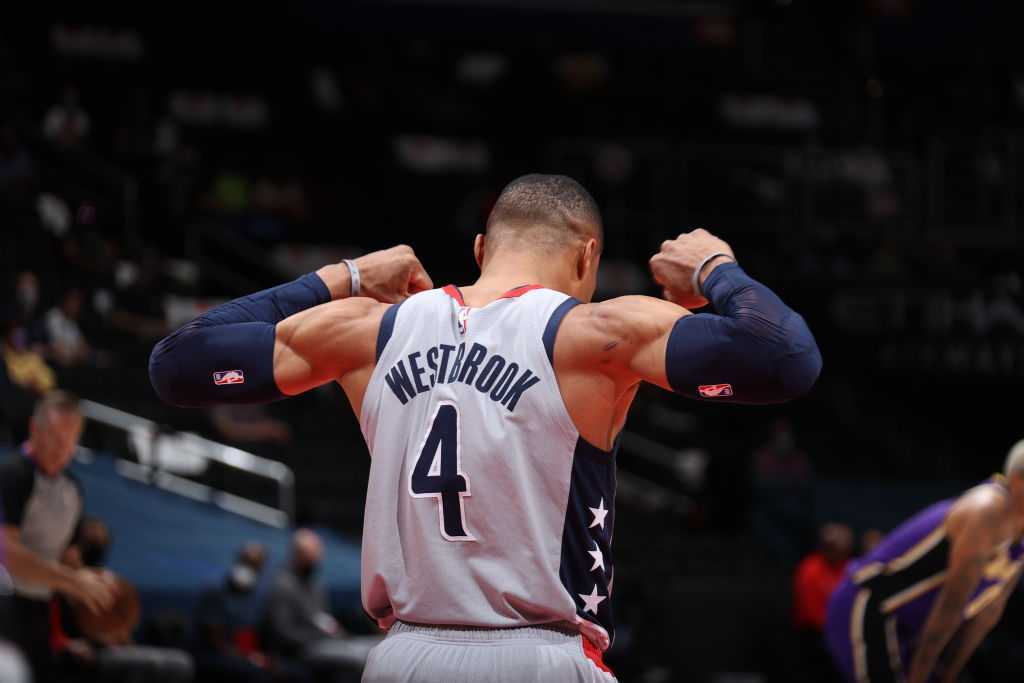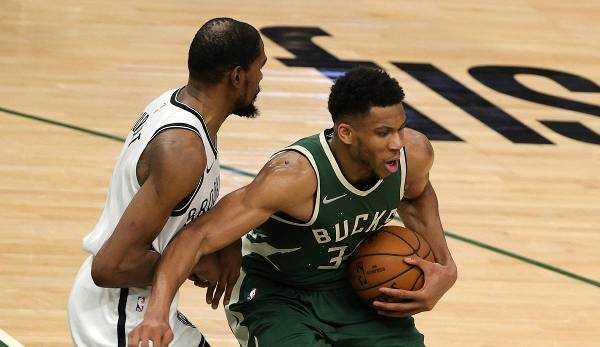After Monday night, Russell Westbrook has done it again. For the fourth time in five seasons, Westbrook will officially average a triple-double. He could play in each of the remaining games and log zero points, assists, or rebounds and he would still be over 10 per game of each.
But what’s that mean?
Russell Westbrook’s career is one that will be talked about online, in barbershops, and in bars for decades. He represents a fun enigma. He’s made a 12 year NBA career and nine-time All-Star legacy built on being relentless and high energy. What is Russell Westbrook best at? Playing hard. And not like “playing hard because that is his job,” like “playing 100 miles per hour for every possession of a 48+ minute game because he’s incapable of doing anything less.”
As silly as it sounds, playing that hard is what sets the future Hall-of-Famer apart. Playing that hard every night for the first nine years of his career has led to him being, by doctors, asked to not play back-to-backs in the last few years. Playing that hard has also made him a nine-time All-NBA selection that has led the league in assists and points multiple time.
But is playing that way what is best?
That seems like a silly question. On the surface, playing hard is always good. Accumulating points, assists, and rebounds are always good. The goal of a basketball game is to put the round ball in the circular hoop more times than the other team. Points and assists do that. Rebounds keep the other team from doing that. But the question boils down to is it working? With a fourth year of triple-double evidence to analyze, we have to look at it.
Historical Precedence

Westbrook’s name is being placed in individual record books alongside Wilt Chamberlain. For those new to basketball, Wilt Chamberlain is, statistically, the Babe Ruth of basketball. Every time you look up an incredible accomplishment, there’s usually one or two guys to do it. Sure, Michael Jordan did it once, maybe LeBron James or Magic Johnson as well… And then there’s Wilt Chamberlain’s name, with something wild like “(5)” next to it. Chamberlain broke basketball over his 14-year career. He averaged over 50 points per game in one season, over 48 minutes per game in another (yes, that’s every minute and overtime). He famously hit triple-digit points in a single game.
But in the years Wilt Chamberlain played for a team that won it all? Chamberlain averaged 24 points per game for the NBA Champ 1967 Philadelphia 76ers and 14 points per game for the 1972 NBA Champion LA Lakers. It’s not that Wilt Chamberlain couldn’t go out and have a big night. In 1966-67, Chamberlain had over 35 points ten times that season. But Chamberlain’s role shifted. He stopped being an all-the-time everything became a defensive force and offensive piece. And they won because of it. In 1971-72 Wilt Chamberlain broke 30 points just four times. He was now sharing the floor with Jerry West, Gail Goodrich, and Jim McMillan.
They can all score, so Chamberlain did the other stuff. He blocked and deterred shots, got the rebounds, and kicked the ball ahead on fast breaks. It’s not that he couldn’t have scored the points, but kicking the ball ahead beat the defense down the floor in a way him dribbling it down could not.
What’s that got to do with Brodie?

Russell Westbrook is undeniably incredible. Getting a triple-double in an NBA game is a demonstration of total control at both ends. The triple-doubler has to find multiple ways to score and is grabbing boards to keep the other team from scoring. To average one? That means you always have that kind of control.
Further, being in that much control and playing like Russell Westbrook is undeniably fun to watch. It’s fun to see a guy fly down the floor for bigtime dunks and lobs before half the defense has crossed midcourt. It’s crazy to see the relentless attitude from a player diving out of bounds for loose balls after 35 minutes of basketball to save a possession is awe-inspiring.
But it also hasn’t yielded wins. Westbrook’s first triple-double campaign was on a 47-35 Thunder team. The Thunder settled in at 6th place in the Western Conference before losing in the first round of the NBA Playoffs. The second triple-double campaign was on a 48-34 Thunder squad that went out in a six game first round series. The third? A 49-33, sixth seeded Thunder team that lost (you guessed it) to Portland in a first round series.
This year, Russell Westbrook and teammate Bradley Beal are leading a team that sits, currently, at 30-35 and 10th place in the Eastern Conference. For reference- a year ago, without Westbrook, the Wizards were also in this 9th / 10th spot (the added Orlando Bubble games actually hurt them, but the teams behind them didn’t play).
As things stand, the 10-seed is in able to play its way into the playoffs. If the current standings hold, Westbrook and the Wizards could beat the Indiana Pacers and then the loser between the Hornets and Celtics to get into the playoffs. Currently, that would lead them to a first-round matchup with the Philadelphia 76ers. This season, Washington is 0-3 against Philadelphia. (For what it’s worth, Washington is 2-0 against Indiana, 0-2 against Charlotte, and 1-2 vs. Boston.)
Nuclear Option

The issue with being critical of Russell Westbrook boils down to one question: what else is he supposed to do? Sure, triple-double Russell Westbrook may be bound for another first-round exit. But was he supposed to do something else? When Chamberlain passed off his responsibilities, he had someone to hand them to. He had multiple people to share the scoring load with on the Philadelphia 76ers in 1966-67, three other players averaged over 18 points per game. Three of Chamberlain’s teammates in Los Angeles did, too.
Scoring isn’t everything. But, in a faster era of basketball, with a three-point line and dramatically better spacing, the only one of Westbrook’s teammates averaging more than 15 points per game is Bradley Beal. At some point, that Westbrook has 10 or more assists in itself is impressive. In Oklahoma City? He had just one teammate average over 18 points per game twice (Paul George). Westbrook can’t concede his influence on the game in the same way Chamberlain could because the options to hand it to are not the same.
Westbrook loosening his grip on the game increases the chances it floats away. While Westbrook has played with All-Stars in Paul George and Bradley Beal, none of his teams have the depth of scoring abilities that Chamberlain’s had. Averaging a triple-double has become a nuclear option for mad-scientist Russell Westbrook because it’s something he can fall back to. The game becomes entirely based on his impact. The outcome, for Westbrook, is at least in his control. And if nothing else, it’s incredible to watch him control it.






